The supermarkets’ growing online presence is a threat, but by upping their game independent retailers are finding ways to ensure shoppers prefer bricks to clicks. Gaelle Walker investigates
With a value of £6.5bn and growing at 16% year on year, the online grocery shopping market is in the rudest of health. Just under 30% of UK consumers choose to shop online and have their groceries delivered to the door, and as services get slicker that figure looks set to soar.
Neil Saunders managing director of retail research agency Conlumino puts the growth down to a number of factors. “First, many consumers are very time poor and so value the convenience of being able to order things online for home delivery. Over recent years delivery options and flexibility have improved, which has made things even more convenient for consumers. Second, internet connection speeds have improved, which has increased the satisfaction of online shopping. Third, supermarkets have improved websites, ranges and services.”
The cost of having groceries delivered has also reduced, with many of the supermarkets introducing pre-paid bundles such as Tesco’s Delivery Saver plans. For £36, Tesco shoppers can choose from available delivery slots on any day of week, up to once a day, with a minimum order value of £40, for three months.
The number of supermarkets offering online grocery shopping services has also increased. Earlier this year a tie-up with Ocado saw Morrisons become the latest major grocery retailer to launch a comprehensive online grocery service.
But, it’s not just Tesco, Asda, Sainsbury’s, Waitrose and Iceland from whom Morrisons will be hoping to win trade. Independent convenience stores in both high street and rural locations are now feeling the heat of the supermarkets’ delivery schemes, and Saunders believes that the booming online grocery market is “broadly negative” for the high street as a whole.
And it would seem that many others agree. “When home-shopping groceries first started, it was not a threat to convenience stores. Indeed, customers tended to forget to buy more items than if they had actually visited the supermarket, leading to the situation where, if anything, there was more local top-up shopping,” Rural Shops Alliance chairman Trevor West says.
“Over the years, the supermarket websites have steadily improved. Today, supermarket delivery vans are a common sight in even remote rural villages and are taking significant market share of the grocery spend. In particular, parents with children and the newly retired - people who are not commuting into nearby towns and who in the past would therefore shop locally more often - are now using supermarket deliveries for at least part of their needs,” he says. Stores in holiday areas are also being hit as shoppers opt to have their normal weekly groceries delivered to holiday rentals, and even campsites.
“We regularly hear comments from retailers in tourist areas that deliveries to local campsites and caravan parks are impacting on their sales,” West adds. “In the past, many retailers would take advanced orders and either deliver them to the premises or have them packed ready for collection on changeover days. This business is under considerable threat. This also applies to the owners of second homes, a significant factor for many villages in places such as Gloucestershire or Devon.”
It’s an experience which is all too familiar to Dane and Hilary Vanstone, of Holywell stores in St Ann’s Chapel, Devon.
“Our biggest competitors are not the physical supermarkets it’s the home deliveries that multiples are now increasingly making to rural areas,” Dane explains. “Believe it or not, people even get their groceries delivered to their tent.”
Upping their game
But as Dane, and a growing number of progressive retailers are discovering, there is a way to fight back. Determined not to let the delivery van bag all of their profits, Dane and Hilary have been working hard to add innovative products and services, such as ‘cream teas in a box’, freshly baked pasties and local produce tastings, to keep their footfall up.
Just under 60 miles away in the North Devon village of Holsworthy, Premier retailer Dan Cock is also retaliating. “I used to despise seeing the delivery vans in the village, but a few months back I decided to turn the way I think about the situation on its head, and now I actually welcome it,” he says.
“At the end of the day, online shopping is keeping people out of the supermarkets. It means that people are sticking to their weekly lists and only buying what they need. They aren’t buying items on impulse, and are being let down by substitutions and under-picks. These are all areas that convenience retailers can pick up on,” Dan says.
Having ordered a couple of trial supermarket deliveries to his own home, Dan is adamant that fresh fruit and vegetables remain a key area of weakness for the online delivery giants.
“The items that were delivered to me by the supermarkets were often not of the quality, size or ripeness that I wanted, proving that convenience retailers - who can buy high-quality fresh goods from local suppliers, as well as from our wholesalers and symbol groups - have a huge opportunity,” Dan says.
Local marketing and food expert Stephanie Rice of Rice Retail Marketing agrees that a range of high-quality fresh and local goods will help the cause.
“Minimum order requirements mean that people are unlikely to do more than two online deliveries a week, so there will probably be a gap in the week when shoppers will need to top up on fresh. That’s the convenience industry’s opening,” she says.
“Excellent customer service and good availability are also vital. The key is for independent retailers to ensure they offer a shopping experience that consumers want to come back for,” she adds.
Isle of Wight Londis retailer Charles Brading is well versed in this area. “I’ve lost count of the number of supermarket delivery lorries that drive by our store each day. Even the people who live two doors down have a Tesco delivery once a week! It means you absolutely cannot be complacent.
“Standards have to be kept high and I strive to keep on adding interest with attractive deals and local foods such as fresh crab.”
Promotions, Charles adds, can also play a role. “Londis has come on leaps and bounds in this department I can now beat Tesco on price on a number of lines. But we’ll need much more of this going forward. Promotions, and £1 lines in particular, can help us to grab impulse sales from those shoppers who stick to their online ‘favourites’,” he says.
Every little helps
Additional services can also help, adds Dan. “Independents should be playing to our strengths, and focusing on adding new and helpful services such as photocopiers, ATM, lottery, parcel collection and more, even extending opening hours if needs be,” he adds.
Retailers could even think about launching their own home delivery schemes where appropriate. Providing they function efficiently, and service is delivered with a smile, schemes can be as high- or low-tech as a store owner chooses, although it’s important that a full analysis of the costs associated with employing additional staff and running a suitable delivery vehicle are carefully considered.
Charles, for example, runs a low-tech and low-cost scheme that offers shoppers a home delivery option one day a week.
“Each Thursday I run a home delivery service. Most of the people who use it are elderly and not that computer literate so we take orders over the phone rather than online, and that suits everyone. At the moment I get about six orders a week. They are not small deliveries, either. One woman regularly orders more than £100-worth of groceries.”
In Bells Yew Green, East Sussex, Lambs Larder owner Peter Lamb runs a rather more complex scheme for shoppers. He has been running a highly successful mobile shop and Click and Collect scheme for the past couple of years, but has recently added a home delivery option to his website. Unlike the supermarkets, Peter’s online scheme has no minimum order, and delivery is free between 8am and 9pm on weekdays. Shoppers can choose to pay in advance via their PayPal account, or use a card, and Peter even takes payment on delivery.
Like Dan and Charles, Peter is a staunch believer that complacency, rather than the supermarket delivery van, is the biggest threat to independent businesses. “We believe even the smallest of enterprises can show the big players a thing or two,” he says.
Dan’s experience backs this up. “I now get all the supermarket delivery drivers coming into my store for their snacks, lunches and drinks,” he laughs.•




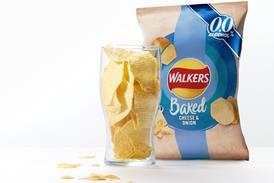
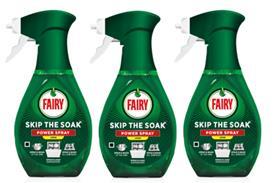











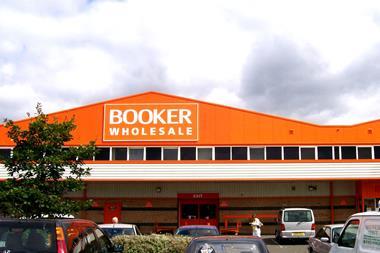
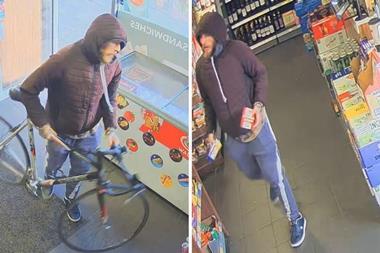

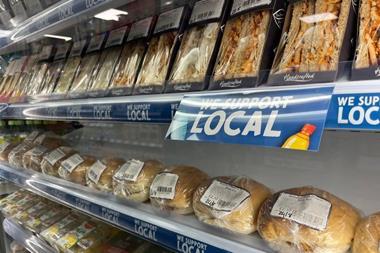
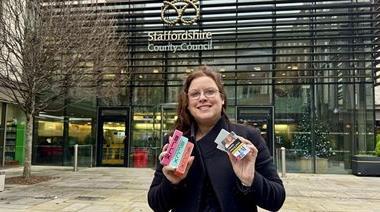
1 Readers' comment